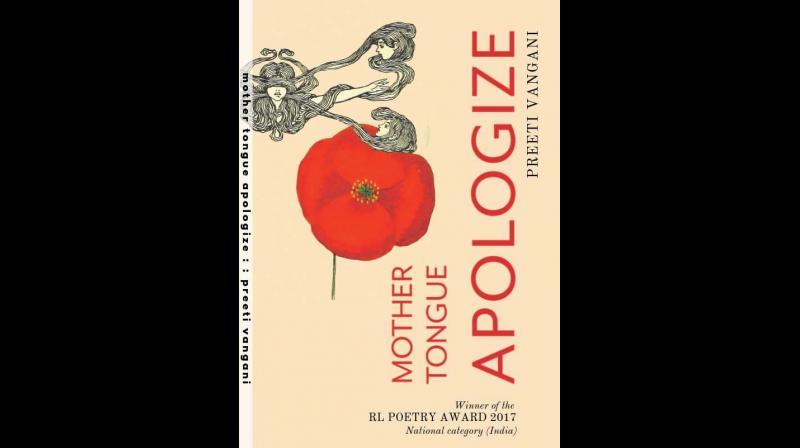Unique verses

Over the years, poetry has evolved in many ways. From William Wordsworth to Percy Bysshe Shelley, and T. S. Eliot, every poet has inspired various generations to weave their imagination into free flowing verses. And among many budding poets is Indian-origin, San Francisco-based poet Preeti Vangani, who questions and challenges everyday language in her poetry.
Humorous, dark, sharp and often redemptive, her new poetry collection Mother Tongue Apologize explores womanhood, family, sexual relationships and gender violence in India. Her will to write was developed with her love for stage poetry, and it was in 2016 that Preeti started writing poetry more consciously.
“I have always been magnetically attracted to being on stage and that drew me to writing poems. My mother’s passing has been the strong, central force that drives me to write, and has made me investigate themes of grief, girlhood and family relationships,” says Preeti, who is an MFA student in writing and was inspired by writers like Dodie Bellamy, Danez Smith, Brittany Perham and Kevin Young while writing her début poetry book.
Rooted in a narrative imagination, Preeti’s poems are well-concentrated units of storytelling. They are lyrical, confessional and chase things that don’t exist. As a writer Preeti, has a knack for being inventive and hence it took her several drafts to compile the entire book of poems. She reads her poetry out loud over and over until every line follows a rhythm or music. “I want to get my writing on the page as I can get it on the tongue. I have learned to read my poems out loud as I write them. This makes it easy for readers to access the poem,” she explains.
While at the time of social media many poets reckon that social media has opened the world up to bite-sized Instagram poetry, and Preeti too advocates the digital platform. She believes that people who were otherwise indifferent to the genre at large, are now finding a way to engage with it.
“I think the best part about poetry is that there is never just one type of poem that is right or correct. As a reader, I am thrilled by how many voices from around the world I can easily and freely hear on the Internet,” she insists.
Although Preeti too has participated in stage poetry, but she does not upload her first draft on social media in order to earn a few likes. “I have to keep reminding myself that the thrill of getting new likes or followers cannot and must not supersede the pursuit of bettering my craft,” she shares.
When asked if digital platforms pose a threat to the serious writers, the poet responds in negative. “I think as poets we all have different definitions and paths to what we call success or ambition. And there’s enough room for everyone to grow separately,” Preeti muses.

